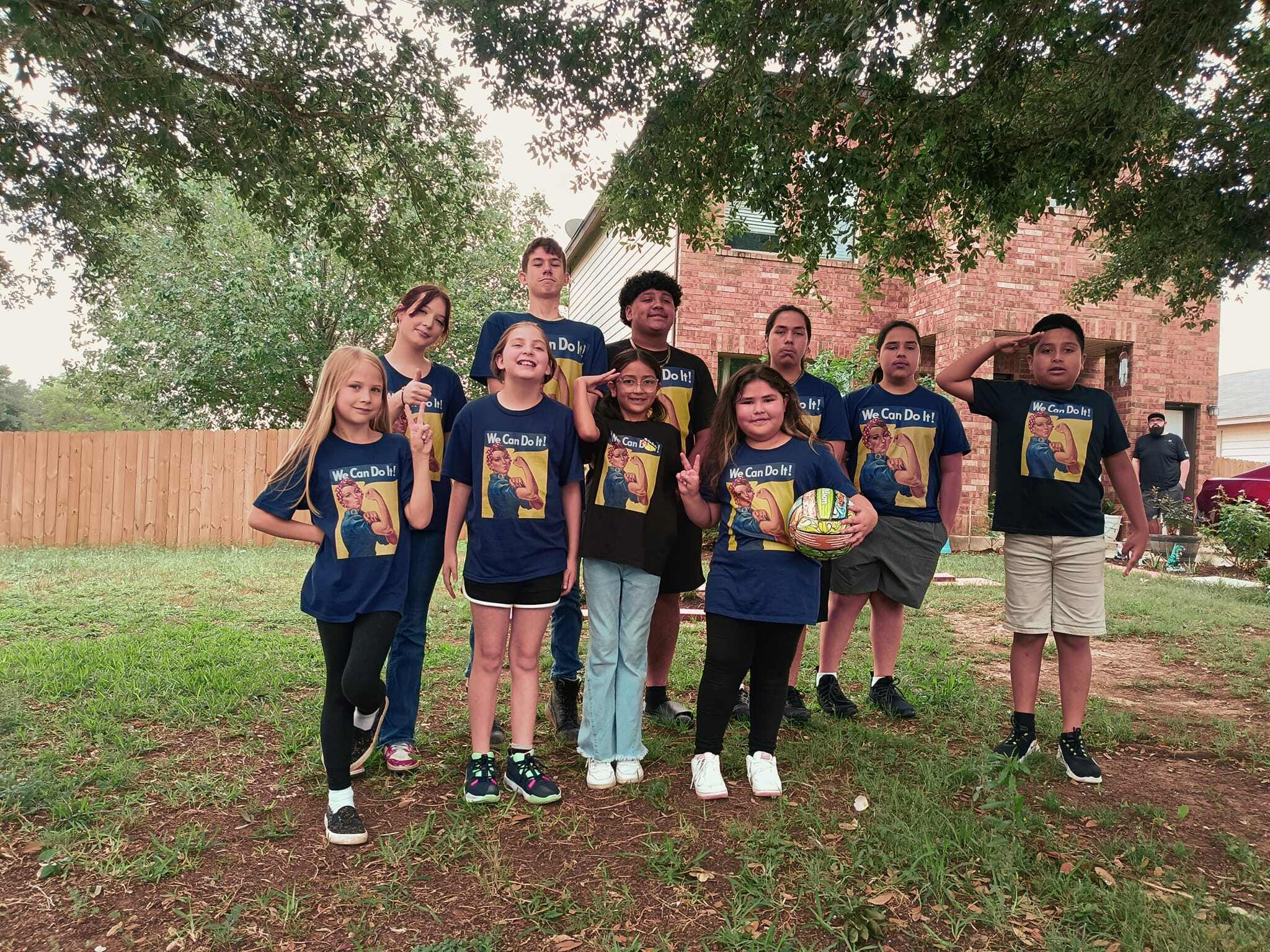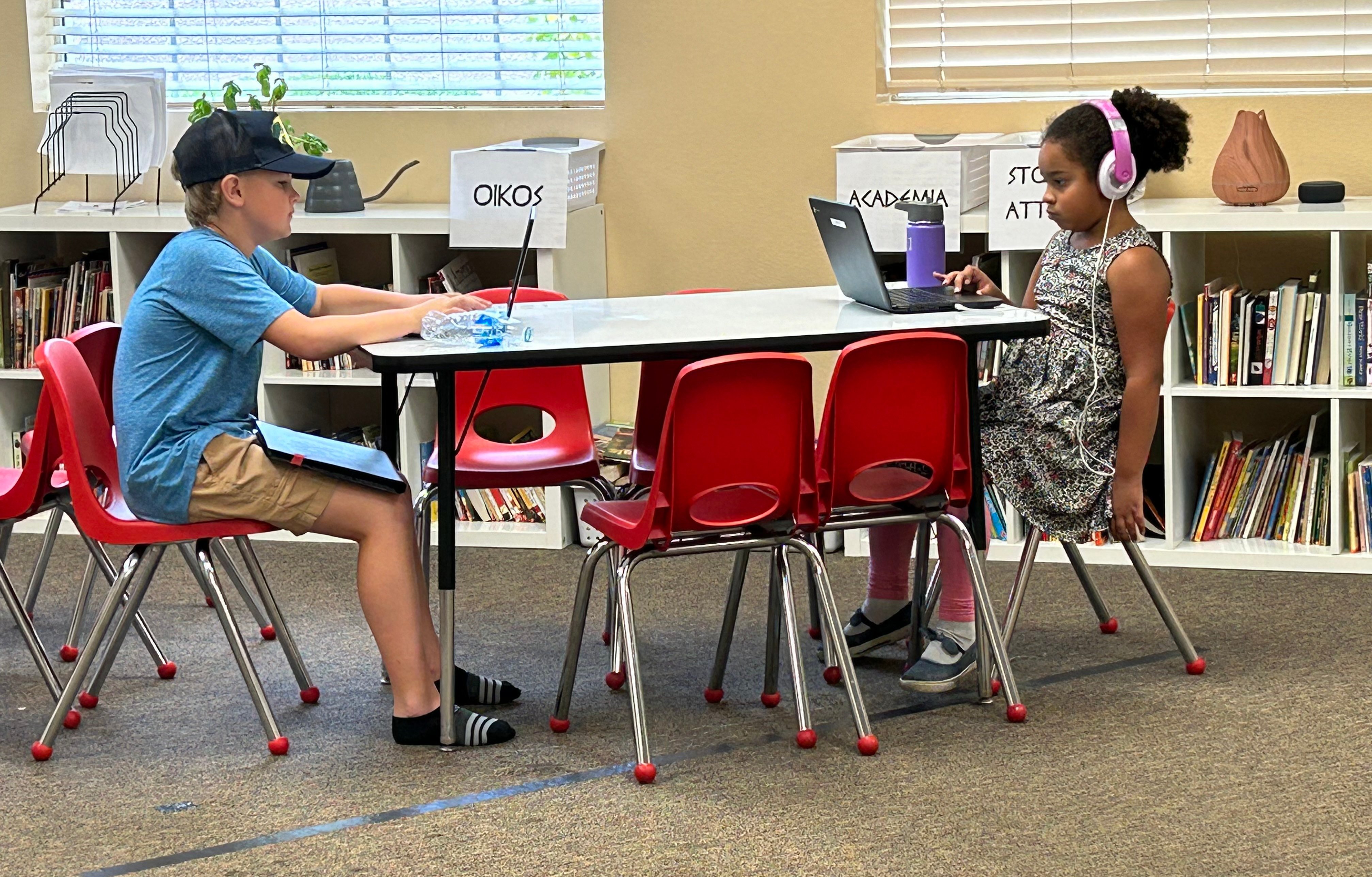Summer '23 Movement-Building Tour
It's June, which means it's time for the National Microschooling Center to hit the road for our summer movement-building road trip. We'll be in 6...
4 min read
Don Soifer : Nov 11, 2024 11:58:36 AM

The long-honored history of America’s military veterans is steeped in selfless acts to overcome obstacles and challenges and achieve good for the benefit of others. So it is not surprising that many of them have chosen to bring their leadership to America’s microschooling movement, especially as many of them confront the challenges of meeting their families’ education needs where other options in their community seem less than ideal.
Microschools are small, innovative learning environments, more often than not operating outside of traditional or government-operated education systems. Depending on the frameworks of the state in which they live, microschools can be organized as small private schools, learning centers serving children whose families observe their state’s homeschool requirements, or in some cases as public small charter schools or even schools within larger public schools.
 A major reason families value microschools as options for their own children is that their small size and absence of bureaucracy lets them be built and operated around meeting the particular needs of the children and families they serve. This can require vision, fortitude, and resourcefulness overcoming the challenges inherent to startups in a sector long dominated by government monopolies.
A major reason families value microschools as options for their own children is that their small size and absence of bureaucracy lets them be built and operated around meeting the particular needs of the children and families they serve. This can require vision, fortitude, and resourcefulness overcoming the challenges inherent to startups in a sector long dominated by government monopolies.
“From day one, the Marine Corps taught me never to accept ‘no’ for an answer, a mindset that has fueled my persistence through the maze of zoning laws, building codes, and state regulations necessary to open a private school,” describes Eric Threeton, a United States Marine Corps veteran and cofounder, along with his wife Christina, of the acclaimed Nevada School of Inquiry middle-school microschool in Las Vegas.
Research shows that more of today’s microschool founders are experienced educators than hail from any other career track, and half are launching their own business for the first time. Nearly all understand that the work they are undertaking is unlikely to produce the financial return on investment they might expect in other fields – the rewards they expect will come in other forms.
 MaryKatherine Gorlich, a combat veteran with 8 years of service in the United States Army, provides valuable leadership to her beloved Augusta, Georgia microschool SOAR Academy, which offers customized curricular approaches, including serving children with neurodivergencies. To Gorlich, her role, officially deemed Academic Success Coach and Community Liaison, has much in common with her tour with the 12th Aviation Brigade in Afghanistan. Her husband Jason, who retired last year after 23 years of service to the United States Army as a Special Electronics Maintenance and Repair Specialist also plays invaluable roles at Soar Academy, as Coding and Robotics Instructor, IT, bus driver, and any number of other vital responsibilities at the microschool.
MaryKatherine Gorlich, a combat veteran with 8 years of service in the United States Army, provides valuable leadership to her beloved Augusta, Georgia microschool SOAR Academy, which offers customized curricular approaches, including serving children with neurodivergencies. To Gorlich, her role, officially deemed Academic Success Coach and Community Liaison, has much in common with her tour with the 12th Aviation Brigade in Afghanistan. Her husband Jason, who retired last year after 23 years of service to the United States Army as a Special Electronics Maintenance and Repair Specialist also plays invaluable roles at Soar Academy, as Coding and Robotics Instructor, IT, bus driver, and any number of other vital responsibilities at the microschool.
Gorlich observed that in Afghanistan, children, specifically girls, “are not valued in the ways we value them.” Witnessing this reality drew her to recognize important value in providing quality educations to children who might not always get it. This desire to help was on her mind when she returned home as a disabled combat veteran and recognized that her own oldest child was not getting the desired experience from the school she was assigned. From her experience as a military intelligence analyst she was mindful that in her combat military role, “As we find a need, we just make it happen.”
Last month, Gorlich’s accomplished leadership experience proved invaluable to the SOAR community when severe flooding from Hurricane Helene resulted in catastrophic flooding and damage and the school needed to find a new location to continue serving its community, many of whom are children with special needs. “My time in the military taught me how to adjust to situations,” she explained. “I just love what I do.” And her microschool and the families it supports are appreciative for their good fortune.
I n Hays County, Texas, United States Navy veteran Chauntel Seminerio founded Naomi Parker Fraley Education, a grassroots microschool serving 4th-12th grade students, during the pandemic shutdowns of the 2019-20 school year. Fraley, the microschool’s namesake, was the real-life heroine who became Rosie the Riveter, iconic symbol of the patriotic mobilization of American women to answer their country’s call for wartime industrial productivity during World War II. “This is what Americans did when our country needed it – people stepped up,” explains Seminerio. And today, she recognizes education as a need worth stepping up for.
n Hays County, Texas, United States Navy veteran Chauntel Seminerio founded Naomi Parker Fraley Education, a grassroots microschool serving 4th-12th grade students, during the pandemic shutdowns of the 2019-20 school year. Fraley, the microschool’s namesake, was the real-life heroine who became Rosie the Riveter, iconic symbol of the patriotic mobilization of American women to answer their country’s call for wartime industrial productivity during World War II. “This is what Americans did when our country needed it – people stepped up,” explains Seminerio. And today, she recognizes education as a need worth stepping up for.
Growing up in a Navy family and attending 14 different schools growing up gave her an understanding about the meaning of taking academics into her own hands. And as a Personnel Specialist supporting naval air squadrons, she sharpened her talents for simplifying things, navigating bureaucracies and getting the results she needed.
Upon returning to civilian life, Seminerio commenced a professional trajectory leading her to experiences as a chef, a managing editor of a local newspaper, and a classroom teacher. When her family’s, and other families, experiences at a public charter school which had been highly recommended no longer made it seem the best fit for her children, and then faced pandemic interruptions, she realized it was time to step up.
“If I can stand on a palette at 5’5” and boss men around, then I can run a school,” she recognized, and she put her Navy experience designing programs to work creating her innovative grassroots microschool bringing together a traditional educational model with flexibilities her families value. Naomi Parker Fraley Education’s unique education model prioritizes cross-utilizations such as literature with history and science with math, intertwined with reading and math basics in ways that “kids know exactly what they need to work on,” in ways a Navy veteran can recognize.
Today, Fraley Education’s winning approach embraces community partnerships and working together in ways that may very well propel this microschool model’s growth around Texas.
 In Casa Grande, Arizona, United States Navy veteran Eddie Brown is cofounder of FaithScape Learning Pod, a faith-centered microschool he runs with his wife Deja Hillis, an experienced educator. Brown served as a Religious Program Specialist, where his many roles included providing counseling and chaplain services. Their learning center blends foundational academics for students aged 5-11 with a focus on core biblical values like faith, love, and kindness, creating a supportive environment where children can grow academically and spiritually.
In Casa Grande, Arizona, United States Navy veteran Eddie Brown is cofounder of FaithScape Learning Pod, a faith-centered microschool he runs with his wife Deja Hillis, an experienced educator. Brown served as a Religious Program Specialist, where his many roles included providing counseling and chaplain services. Their learning center blends foundational academics for students aged 5-11 with a focus on core biblical values like faith, love, and kindness, creating a supportive environment where children can grow academically and spiritually.
Faithscape answered a need voiced by families in the community seeking a safer setting, one where their children were challenged more academically, with a desired faith component. Brown’s approach working with the children they serve emphasizes building trust to “teach kids how to have faith in education.” His work has benefited from drawing on his military experience and training instituting “a support system in which you can teach children to ground their foundation and implement a strategic structure.”
These four examples show military veterans applying their different backgrounds and experiences to leading microschools.
“The same resourcefulness I developed in the military, when faced with high-stakes missions and limited resources, has translated directly into managing the day-to-day operations of a school—ensuring that despite the hurdles, I can create an environment where students thrive,” notes Marine Corps veteran Threeton of his work co-founding Nevada School of Inquiry.
Nationally can be found many other examples where, like these, a highly diverse community of retired military veterans rededicate their principles-aligned leadership to leading microschools in response to the needs voiced in their communities. Each brings a brand of local leadership that America can use plenty of at this time, as they help prepare today’s children to succeed in their future in an increasingly complex world.
Don Soifer is CEO of the National Microschooling Center, https://microschoolingcenter.org/.
.jpg)
It's June, which means it's time for the National Microschooling Center to hit the road for our summer movement-building road trip. We'll be in 6...

James Lomax, founder of LifeSkills Academy in Las Vegas, explained in a feature article by reporter Jackie Valley in the Christian Science Monitor's...
.jpg)
What will 2023 hold for America’s microschooling movement? As this phenomenon has gained prominence in the nation’s education landscape, much...